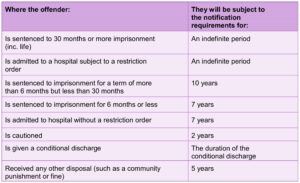Category Archives: News
Derby crime solicitor John Young recently represented a client alleged to have assaulted his partner. Success hinged on a prosecution res gestae argument.
The prosecution allegation
The complainant alleged that an incident had taken place outside her home address early in the morning. Our client’s vehicle was said to have been parked outside at the time.
It was alleged that our client had pushed the complainant into the road causing her to fall over. She alleged that this resulted in two broken bones in her foot. Our client was also alleged to have threatened to kill her whilst threatening her with a screwdriver. He was said to have snatched her mobile phone from her and then left the scene.
Denied allegations
John’s client denied the allegations. He accepted that he had been at the scene but maintained that the complainant was the aggressor. Our client then described how she had tried to hit him but had fallen over in the process, landing in the road. He denied that he had made any physical contact with her.
Our client provided an explanation explaining why he was in possession of the mobile phone and the screwdriver.
In the event the victim declined to provide a forma statement to the police. She did not support the prosecution. The allegation as set out above was set out in the complainant’s first contact with the police.
Prosecution depended on res gestae argument
Despite the lack of a formal complaint, our client was charged. The prosecution case was to be based on a 999 call made twenty minutes after the incident was said to have taken place. CCTV footage showed the delay in making the call.
Bodycam footage from police officers captured an initial complaint but this was nearly fifty minutes after the incident. There was a statement from a delivery driver who saw the complainant falling the road. He could not say how or why she fell.
As no-one saw the incident aside from the complainant and the defendant, the prosecution had to rely on hearsay evidence to try and secure a conviction. This evidence would come from the 999 call and the bodycam footage. Surprisingly, the prosecution did not make an application to admit this hearsay evidence prior to the trial date.
At the beginning of the trial the prosecution made clear the basis upon which they were presenting their case and made the hearsay application. The prosecution conceded that if the application was unsuccessful then the prosecution could not proceed.
Problems with the hearsay evidence
There were several problems with the res gestae argument:
- the bodycam footage showed that by the time the police arrived the victim was not “so emotionally overpowered” that the possibility of concoction or distortion could be disregarded
- During the 999 call the complainant initially stated her leg was broken. after questioning the operator establish that the victim only believed this because her leg was ‘painful’
- It was clear from the bodycam footage that the leg was not broken.
- During the 999 call the complainant alleged that she had taken the screwdriver from the client in order to stop him stabbing her with it. Police evidence showed that the screwdriver had been recovered from the client’s vehicle when he was arrested
- The timing of the incident showed that the complainant’s suggestion that this had been a chance encounter could not be true.
- The CCTV footage showed that the complainant was not telling the truth when she said she had been assisted by a stranger while she lay in the road.
- The footage also showed that, despite her allegation, she had not been swung around and then pushed by our client.
- There were further significant differences between the accounts given in the 999 call on captured on bodycam footage.
A detailed analysis of the evidence by the defence
John’s detailed analysis of the evidence meant that he was able to use all of the above features of the case to argue against the admission of this purported res gestae evidence. This included a thorough understanding of the timeline in the case and all of the inconsistencies between the different parts of the evidence.
He argued that it would be wrong to conclude that the complainant was so emotionally overpowered that there could not have been concoction or distortion.
The Magistrates agreed with John’s submissions. They refused to allow the Crown’s application to admit any of this evidence under section 118(1)(a) Criminal Justice Act 2003 and the relevant case law.
Once the Crown’s res gestae argument had been refused the Prosecution accepted that they had no further evidence to place before the Court. No evidence was offered and the charge was dismissed.
Some more information about Res Gestae and hearsay evidence can be found here.
Defendant’s Costs Order Made
Our client was not financially eligible for Legal Aid. He had funded the matter privately. John successfully applied for a Defendant’s Costs Order which permitted recovery of a proportion of the private costs paid.
Contact Derby Crime Solicitor John Young

If you face allegations before the Magistrates’ court you will need an experienced solicitor with an eye to detail to ensure that your best case is placed before the court.
You will also want to instruct a solicitor who understands all of the relevant law and is fully prepared to make the arguments that you need to win your case. This will particularly be the case if there is to be a difficult res gestae argument.
Please telephone John Young for an appointment on 01332 546818 or use the contact form below.













